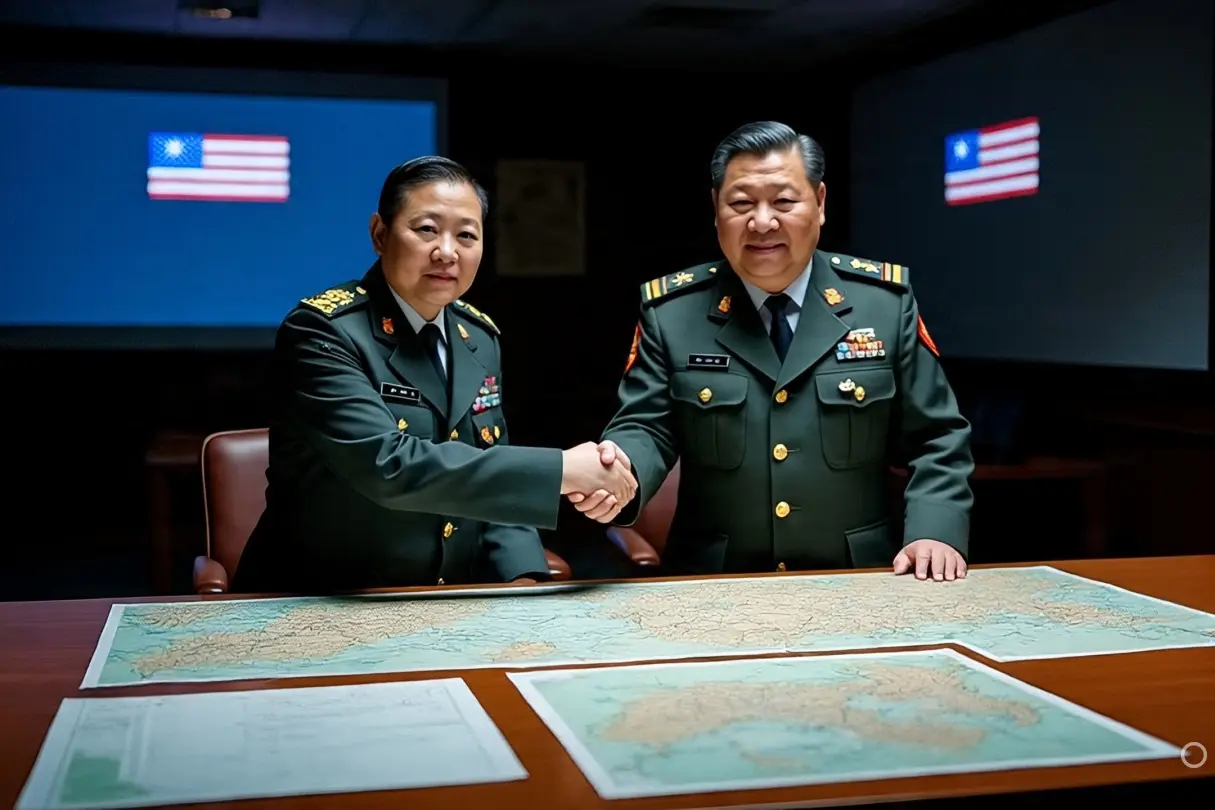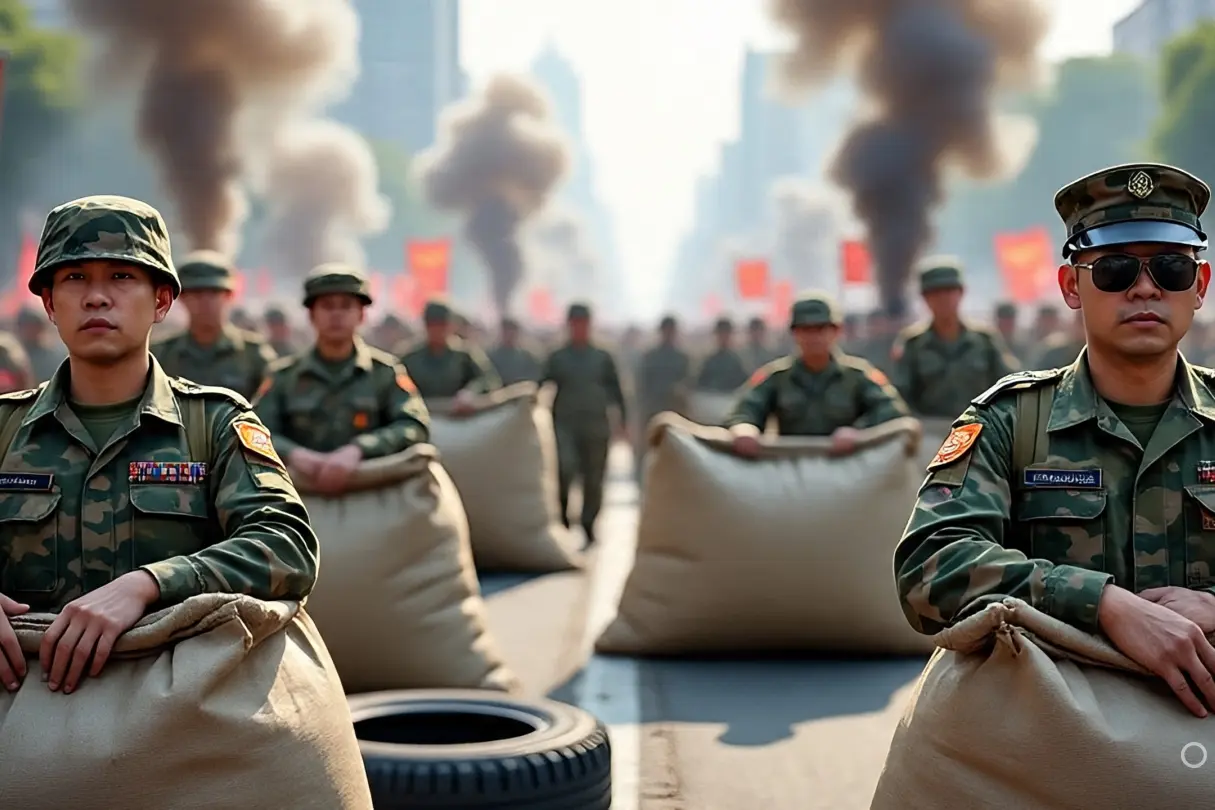🎖️ A Military That Moves the Nation
Thailand’s military isn’t just a defense force—it’s a political player. Over the decades, it has overthrown civilian governments, rewritten constitutions, and installed its own leaders. The country has seen more coups than elections in some eras, and behind nearly every political turning point stands a uniformed power structure with deep roots. This influence raises a question many have quietly asked for years: is Thailand’s military acting solely in national interest—or is there foreign money, strategy, or pressure influencing its actions?
The theory that the Thai military receives covert funding from foreign powers—most often the United States or China—has taken root among some observers. The idea goes like this: in exchange for political loyalty, access to infrastructure, or regional leverage, foreign governments funnel money or resources to Thailand’s generals through discreet channels. While no official records confirm these payments, patterns in foreign policy, military procurement, and global diplomacy keep the theory alive.
🌍 Why Thailand’s Military Matters Geopolitically
Thailand occupies a powerful spot in Southeast Asia. It borders Myanmar, Laos, Cambodia, and Malaysia—providing access to the Gulf of Thailand and Andaman Sea. For decades, this made Thailand an essential buffer zone between rival powers and a launching point for military operations across the region. During the Cold War, the United States relied heavily on Thai territory for air bases and logistics. More recently, China has increased its influence in the region, offering loans, arms deals, and diplomatic backing. Thailand sits in the middle—literally and politically.
Its military, then, isn’t just a domestic force. It’s a regional asset. This makes it valuable to powerful nations that want to keep a friendly regime in place, one that won’t disrupt supply chains, block military access, or shift loyalties suddenly. The theory suggests that this value is reflected not just in public diplomacy, but in quiet financial and strategic support meant to ensure Thailand stays “aligned.”
🔍 Following the Money: Aid, Arms, and Access
Here’s what’s known: Thailand receives military aid from several countries, including the U.S., which has provided funding for equipment, training programs, and joint exercises for decades. There are also records of defense spending on large arms deals with Chinese suppliers, especially during periods when Western relations soured. In some cases, foreign governments have offered military education, equipment discounts, or infrastructure partnerships as part of bilateral defense agreements. These transactions are mostly above-board—public, budgeted, and often announced in press releases.
But the theory kicks in where transparency ends. Critics argue that “off-the-books” support could exist through less visible channels:
-
Intelligence cooperation budgets
-
Discretionary funds for foreign liaisons
-
Infrastructure development tied to strategic military access
-
Private investments in defense-connected Thai businesses
-
Political “favors” exchanged for silence or loyalty
None of these are confirmed, but the lack of detailed oversight on certain Thai defense funds—and the history of secretive arrangements in international military relations—fuels speculation.
📜 Coups and Timing: A Pattern of Suspicion
Every time a Thai military coup occurs, foreign reaction is closely watched. In some cases, Western countries reduce aid or suspend cooperation. In others, they remain cautious but quiet. Meanwhile, other global powers step in, offering their support with fewer strings attached. After the 2006 and 2014 coups, for example, Western criticism intensified—but Thailand’s military leaders maintained their hold on power and sought new partnerships abroad.
This dance—of pressure from one side and opportunity from another—adds weight to the theory. Some believe foreign governments have learned to play both sides: publicly condemning democratic backsliding while quietly maintaining relationships with military rulers who can guarantee stability and strategic alignment.
🧠 Why People Believe This Theory
Multiple factors keep this theory alive:
-
🧭 Geopolitical Value: Thailand is one of the region’s most stable gateways for military and trade access. Foreign powers have every reason to keep its leadership cooperative.
-
🔒 Opaque Budgets: Certain parts of Thailand’s military budget aren’t subject to full public review. Some funding is allocated through “special funds” or reserved projects, which raises eyebrows.
-
🤝 Frequent Military Engagements: Despite political controversies, Thailand continues to participate in international military exercises with both the U.S. and China.
-
🎖️ Elite Ties: High-ranking officers often study abroad, join international military academies, or work closely with foreign advisors—networks that can evolve into power blocs or loyalty pipelines.
-
🗣️ Quiet Diplomacy: Key diplomatic actions—like access to military bases, cybersecurity coordination, or joint intelligence—often happen with little media attention, reinforcing the sense that something deeper is happening behind the scenes.
💼 Comparing Real Funding vs. Theoretical Support
Let’s break it down:
| Type of Support | Publicly Confirmed | Theorized (Unconfirmed) |
|---|---|---|
| Joint military training | ✅ Yes | |
| Equipment sales & gifts | ✅ Yes | |
| Military education grants | ✅ Yes | |
| Direct covert payments | ❌ No | 💬 Rumored in policy circles |
| Secret political funding | ❌ No | 💬 Alleged without hard evidence |
| Special access incentives | 🤷 Unclear | 🔍 Suggested in military analyses |
This table helps clarify that there is real, ongoing cooperation, but the leap to secret funding or manipulation lacks hard proof. Still, absence of evidence isn’t evidence of absence—and where gaps exist, speculation grows.
⚖️ What’s Strategic vs. What’s Suspicious
Thailand is not unique in this dynamic. Many militaries in geopolitically important countries receive aid, cooperation, or silent backing based on broader strategic concerns. But what separates speculation from fact is transparency. If military budgets were fully open, if defense deals were scrutinized in public forums, and if coups were consistently met with clear diplomatic stances, there’d be less room for theory.
Right now, the Thai military enjoys a unique position—both domestically and internationally. It holds political sway at home while remaining useful abroad. That combination invites loyalty, alignment, and in some cases, quiet indulgence. Whether foreign powers are actively funding this status behind closed doors remains unproven. But geopolitics rarely works in full daylight.
The theory that Thailand’s military is secretly paid to stay aligned with outside powers might never be fully confirmed or denied. It exists in a gray space—one shaped by history, secrecy, and the uneasy mix of diplomacy and realpolitik.




